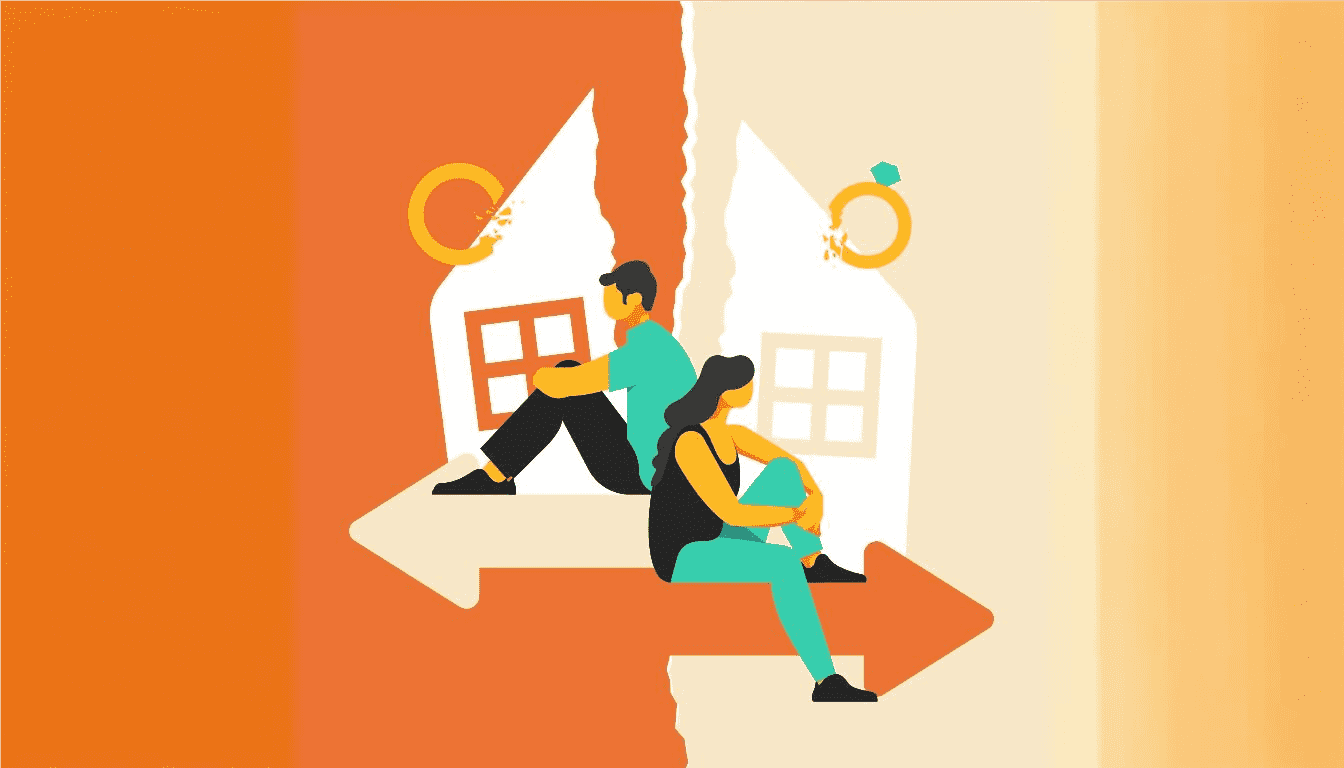Maintenance to Wife
There are numerous laws applying to matters pertaining to maintenance and such jurisdiction is assumed by the Family Courts under the Family Courts Act, 1984. The laws governing maintenance are as under:
- Code of Criminal Procedure, 1973.
- Family Courts Act, 1984.
- Hindu Adoptions And Maintenance Act, 1956.
- Protection of Women From Domestic Violence Act, 2005
- Protection of Women From Domestic Violence Rules, 2006.
- Hindu Marriage Act, 1955.
- Muslim Women (Protection of Rights on Divorce) Act, 1986.
- Muslim Women (Protection of Rights on Divorce) Rules, 1986
- Maintenance And Welfare of Parents And Senior Citizens Act, 2007.
- Maintenance Orders Enforcement Act, 1921.
- Special Marriage Act, 1954.
- Divorce Act, 1869.
- Parsi Marriage And Divorce Act, 1936.
- Dissolution of Muslim Marriage Act, 1939.
- Hindu Minority And Guardianship Act, 1956.
- Guardians And Wards Act, 1890.
- Christian Marriage Act,1872.
- Foreign Marriage Act, 1969.
- Muslim Women Personal Law (Shariat) Application Act, 1937.
- Prohibition of Child Marriage Act, 2006.
- Anand Marriage Act, 1909.
- Dowry Prohibition Act, 1961.
- Marriage Validation Act, 1892.
- Converts’ Marriage Dissolution Act, 1866.
Need for the law
The laws for maintenance are enacted for social justice to the wives and children, providing them with financial support so that they don’t fall prey to destitution and vagrancy.
The principle is derived from Article 15(3) of the Constitution which provides for making special provisions for women and children. Reading the aforesaid provision with Article 39 of the Constitution, the state assumes a positive role of empowering the women.
In case of Captain Ramesh Chander Kaushal v. Mrs. Veena Kaushal & Ors[1] justice Krishna Iyer had stated as under:
“9. This provision is a measure of social justice and specially enacted to protect women and children and falls within the constitutional sweep of Article 15(3) reinforced by Article 39. We have no doubt that sections of statutes calling for construction by courts are not petrified print but vibrant words with social functions to fulfil. The brooding presence of the constitutional empathy for the weaker sections like women and children must inform interpretation if it has to have social relevance. So viewed, it is possible to be selective in picking out that interpretation out of two alternatives which advances the cause — the cause of the derelicts.”
The legislation extensively dealing with the law of maintenance are the Special Marriage Act, Section 125 Cr.P.C., Protection of Women from Domestic Violence Act, 2005. The remedy provided by these laws to women is irrespective of her religion or community. Apart from these laws, personal laws are also applicable to claim the right of maintenance.
Overlapping of Jurisdiction
Owing to the existence of multiple legislations, the Courts are often presented with matters wherein either the party has already claimed maintenance previously under different legislation or the matter with such different legislation is pending before another forum. For eg. A Hindu wife is entitled to claim maintenance under Hindu Adoption and Maintenance Act 1956 (“HAMA”), while simultaneously claiming maintenance under the Hindu Marriage Act, 1955 (H.M.A.), wherein substantive proceedings are ongoing, by invoking Section 24 and 25 of the H.M.A..
It has been a settled position of law that a party seeking maintenance is not barred from approaching the court under multiple legislations or one or more enactments, as the purpose and nature of such legislation is different and independent of one another. However, the argument cannot be invalidated that invoking these legislations at the same time would lead to the contrasting and conflicting orders. Therefore while passing any order of maintenance it is necessary that previous awards whether interim or final amount of maintenance is needed to be disclosed. For eg. if a maintenance has already been awarded under Section 125 of Cr.P.C., the parties has to disclose the fact that in any other proceedings such as a pendente lite maintenance under the H.M.A., where the court is deciding issue of pendente lite maintenance, so that the amount in such proceedings under H.M.A. may be adjusted adequately and the person against whom such orders are passed would not suffer from financial chaos.
In case of Nanak Chand v. Chandra Kishore Aggarwal & Ors.[2], the Hon’ble Apex Court while dealing with the question as to inconsistencies of maintenance under H.A.M.A. and Section 488 of the old Cr.P.C. held that:
“4. Both can stand together. The Maintenance Act is an act to amend and codify the law relating to adoptions and maintenance among Hindus. The law was substantially similar before and nobody ever suggested that Hindu Law, as in force immediately before the commencement of this Act, insofar as it dealt with the maintenance of children, was in any way inconsistent with Section 488, Cr.P.C.. The scope of the two laws is different. Section 488 provides a summary remedy and is applicable to all persons belonging to all religions and has no relationship with the personal law of the parties. Recently the question came before the Allahabad High Court in Ram Singh v. State: AIR1963All355, before the Calcutta High Court in Mahabir Agarwalla v. Gita Roy [1962] 2 Cr. L.J.528 and before the Patna High Court in Nalini Ranjan v. Kiran Rani: AIR1965Pat442. The three High Courts have, in our view, correctly come to the conclusion that Section 4(b) of the Maintenance Act does not repeal or affect in any manner the provisions contained in Section 488, Cr.P.C.”
It is further pertinent to note that some of the high courts have taken a contrasting view for overlapping jurisdiction. It is stated that the proceedings under different acts are independent in nature and do not have any bearing on the other and therefore the amount claimed in the subsequent proceedings cannot be set off or adjusted. In case of Ashok Singh Pal v. Manjulata[3], the Hon’ble High Court of Madhya Pradesh had observed that the remedies under Section 24 of the H.M.A. are different and independent with that of under Section 125 of Cr.P.C.. Similarly Hon’ble High Court at Calcutta in Sujit Adhikari v. Tulika Adhikari [4], also held that adjustment of the maintenance is not a rule.
The stance was made clear by the apex court in case of Rajnish v. Neha [5], where the Court observed that there is no bar to claim maintenance under different enactments however, the same would be inequitable to the husband to pay under each of the proceedings. Thus the maintenance has been awarded to the wife in any previous proceedings, the same is to be disclosed in the subsequent proceedings and the family court shall take into account such maintenance already awarded to determine the further quantum of maintenance in the such subsequent proceeding before the court.
In the case of Neha Tyagi v. Deepak Tyagi[6], wherein Hon’ble Court, while upholding the decree of the divorce, observed that the grant of such degree shall not take away the liability and responsibility to maintain the child till such child attains age of majority.
Issues pertaining to Maintenance
In the case of Deb Narayan Halder v. Anushree Halder[7], the Hon’ble Supreme Court observed the facts and circumstances of the case wherein, there were matrimonial disputes between the husband and the wife and after their separation the relations deteriorated and resultantly many allegations and counterblast were made against each other. The Court stated that in such circumstances evidence of “contemporaneous nature” is to be considered which provides the evidence as to the thinking attitude of the parties with respect to each other at a relevant point in time. And such evidence may be found from letters sent by the parties to each other or their friends and relatives. It is important in respect that if cruelty exists as claimed then such treatment would definitely be corresponded to someone. The Hon’ble Court after perusing the records came to the conclusion that there is no cogent evidence that the wife was subjected to torture and harassment. The Court further added that the conjectures and surmises cannot be made so as to make out a third case which is not presented by the litigating parties. Thus, on such grounds the court had denied the grant of maintenance as there was apparent willful desertion on the part of the wife, however, the maintenance for their child was upheld.
In case of Sharadchandra Chandrashekhar Satbhai v. Indubai Sharad Satbhai[8], the Hon’ble High Court at Bombay had considered the issue of desertion with judicial separation on the subject matter concerning Section 125 of Cr.P.C.. The civil court had determined the allegation of desertion and came to the conclusion that the wife had wilfully deserted the husband without any cogents reasons or sufficient cause, which falls under Section 125 (4) of the Cr.P.C.. It was observed that, a decree of judicial separation was passed on the ground of desertion and cannot be neglected by the magistrate while determining the issue of maintenance. It was held by the further held by the Hon’ble Court that the wife is not entitled to maintenance as she failed to present any reasonable grounds to not live with her husband.
Furthermore in the case of Chetram Mali v. Karishma Saini [9], the court noted that though the wife does not have an independent source of income however, she possesses a decent education qualification i.e. being a graduate from delhi university. The wife out of her own free will has taken up social work and thus there is no impediment of working independently. The Court categorically stated that “The spouse having a reasonable capacity of earning but who chooses to remain unemployed and idle without any sufficient explanation or indicating sincere efforts to gain employment should not be permitted to saddle the other party with one sided responsibility of meeting out the expenses. The equivalence does not have to be with mathematical precision but with the objective to provide relief to the spouse by way of maintenance pendente lite and litigation expenses, who is unable to maintain and support during the pendency of proceedings and to ensure that the party should not suffer due to paucity of sources of income.”
The Hon’ble Supreme Court in a case titled U. Sree v. U. Srinivas [10], has stated that white deciding the dispute for maintenance, the court owes a duty towards to examine and ascertain that the maintenance granted to the wife should be such that she lives in “dignity and comfort and not in penury”. The Court further added that such living is not necessarily luxurious but at the same time she is not living in discomfort. There cannot be any arithmetic formula or mathematical exactitude to determine the quantum of maintenance, it depends upon the social needs, their responsibilities and financial duties towards others[11]. The amount cannot be excessive to such an extent that it puts a substantial burden on the living condition of the other party[12].
To obtain the maintenance and the alimony under Section 25 of the H.M.A., the relevant factors would be income and property of the Respondent, income and property of the applicant and additionally their conduct and other circumstances[13]. The factor for determining maintenance would be the parties’ status, needs, capacity of the husband to pay, his own expenses, and the amount determined should be such as she can live in reasonable comfort while taking into account the life she used to live while living with her husband[14].
It is also pertinent to note herein that, conduct of the wife is also a consideration for refusing the maintenance under Section 25 of the H.M.A., however, it is to be proved that the conduct is such that it would shake the Court’ conscience and appears to be abominable[15].
It is often seen that in society the chances of remarrying are very less as the approach towards divorced women comes with skepticism. Furthermore, she also cannot live with her parents permanently as certainly her parents would be out living with her at some point in time. Thus, it is essential that maintenance is to be granted to her so as to not live a life in penury.
CITATIONS
- Captain Ramesh Chander Kaushal v. Mrs. Veena Kaushal & Ors., (1978) 4 SCC 70
- Nanak Chand v. Chandra Kishore Aggarwal & Ors. (1969) 3 SCC 802.
- Ashok Singh Pal v. Manjulata AIR 2008 MP 139.
- Sujit Adhikari v. Tulika Adhikari (2017) SCC OnLine Cal 15484.
- Rajnesh v. Neha, (2021) 2 SCC 324.
- Neha Tyagi v. Deepak Tyagi (2022) 3 SCC 86.
- Deb Narayan Halder v. Anushree Halder, MANU/SC/0629/2003.
- Sharadchandra Chandrashekhar Satbhai v. Indubai Sharad Satbhai, MANU/MH/0238/1977.
- Chetram Mali v. Karishma Saini, 2023 DHC 8322 DB.
- U. Sree v. U. Srinivas, 2013 2 SCC 114.
- Ibid.
- Ibid.
- Vinny Parmvir Parmar v. Paramvir Parmar, (2011) 13 SCC 112.
- Ibid.
- Archana Singh v. Dharam Pal Singh, 1999 SCC OnLine MP 547.
- Ibid.







